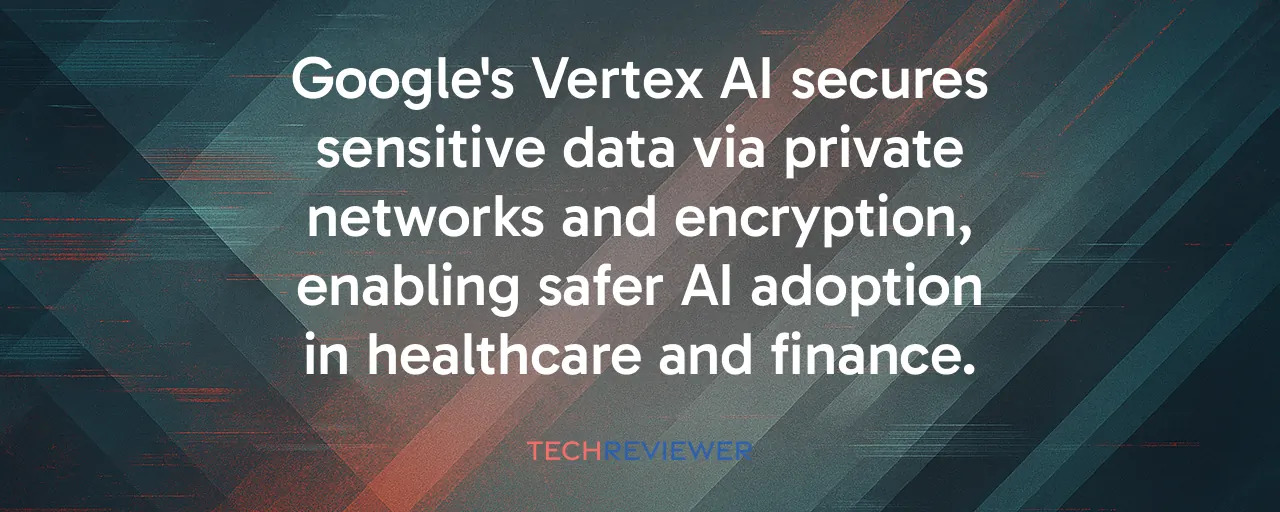A New Era for Secure AI
Google's latest update to its Vertex AI Agent Engine brings a trio of security features that make building AI for sensitive industries easier than ever. Private network deployment, customer-managed encryption keys, and HIPAA compliance open the door for organizations handling protected data, like hospitals or banks, to embrace AI without sweating over privacy risks. These tools let developers create AI agents that stay locked within a company's network, keeping sensitive information away from the public internet.
This shift matters because industries like healthcare and finance face strict regulations. For years, compliance hurdles slowed AI adoption in these sectors. Now, Google's upgrades streamline the process, enabling companies to prioritize building smarter tools and simplifying security configurations. Early adopters, from digital health firms to fintech startups, are already seeing the payoff with faster, safer AI applications.
Locking Down AI's Future
The standout feature here is private network deployment through Private Service Connect. This setup ensures AI agents communicate entirely within a customer's network, cutting out risks from public internet exposure. Combine that with customer-managed encryption keys, and companies gain full control over their data's security, right down to where the keys are stored. For regulated sectors, this level of control builds trust and simplifies audits.
HIPAA compliance seals the deal for healthcare providers. Google's certification means Vertex AI can handle protected health information, like patient records, without violating privacy laws. Still, setting up these private connections and managing encryption keys adds complexity, and some developers might find the learning curve steep. Yet, the trade-off is worth it for the security gains.
Real-World Wins in Healthcare
A regional hospital offers a glimpse of what's possible. By combining a Gemini-powered triage agent with Epic's FHIR APIs on Vertex AI, the hospital built a system that processes patient data inside a private network. With customer-managed keys encrypting every log, the system stays compliant while delivering responses in under 60 milliseconds. This speed improves patient care, allowing doctors to focus on treatment and reduce time spent on paperwork.
The hospital's success highlights a broader lesson: secure AI can streamline operations while maintaining privacy. By keeping data in-house and encrypted, the hospital reduced its audit scope, saving time and costs. This case shows how Google's tools help healthcare providers move from cautious AI pilots to full-scale production.
Why Fintech Trusts Secure AI
In finance, a startup used Vertex AI to build a dispute-resolution agent that handles tokenized payment data. By leveraging private network connections, the agent accesses sensitive information, ensuring it remains off the public internet. This setup slashed the startup's compliance burden, making it easier to pass PCI audits and speeding up customer resolutions.
The fintech example underscores a key advantage: Google's security features let smaller players compete in regulated markets. Startups no longer need massive budgets to build compliant AI systems. However, challenges like region-specific encryption quotas and the need for custom connectors to on-premise data can still trip up less experienced teams.
Balancing Promise and Pitfalls
While HIPAA compliance helps U.S. healthcare, global regulations like GDPR still demand extra data-residency controls. Google's upgrades give enterprises a head start, but they're not a cure-all. The complexity of configuring private networks and managing encryption keys can overwhelm smaller teams. Developers also face debugging hurdles when agents lack public endpoints, which can slow down iteration.
Despite these challenges, the benefits are hard to ignore. Google's competitors, like AWS Bedrock and Azure OpenAI, now face pressure to match these security features. Meanwhile, open-source tools like LangChain could bridge gaps by offering cross-cloud compatibility. As AI moves deeper into regulated spaces, Google's push for security sets a high bar, paving the way for broader adoption and smarter, safer applications.
